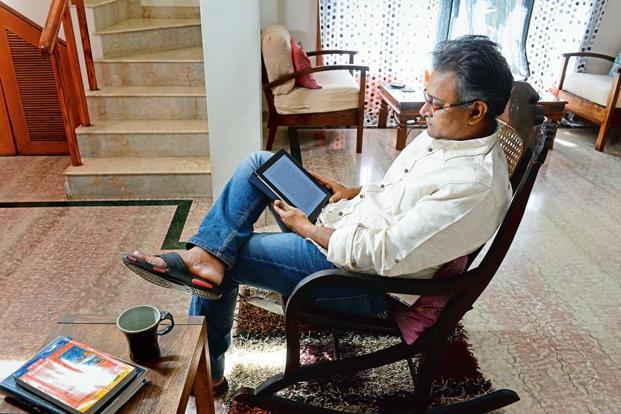If you want to start a company, this may be a good time to do it. For venture capital (VC) funding for Indian start-ups has increased by a whopping 261% in one year, according to a November analysis by PrivCo, a financial data platform that analyses business trends. Several factors are pushing this growth: India is now the world’s second largest mobile market, with over 900 million smartphones, and half of its 1.25 billion population is under 25.
“For everyone, from anywhere, with whatever background, it is the right time to start a company. The goodwill has never been this high, even from parents, who are no longer worried about who will marry their child,” says Harsh Shah, co-founder of Shopsense, a Mumbai-based company which works with retailers to help them enhance the shopping experience with technology.
“More and more start-ups are getting created by younger and younger people,” says New Delhi-based Varun Chawla, co-founder of 91springboard, an incubator and an early-level funder for start-ups. “The market is hot, there’s early-stage financing and increased capital.”
But there are some rules, some must-dos before you get set to ride the start-up wave.
Find a big problem
All sound businesses are based on someone trying to solve a problem. Zomato solved the perennial issue of “Where do I find a place eat around here?” Uber found that people had trouble finding taxis on the street and made it spectacularly easy to call one to wherever they were. “You need to ask yourself what is the problem you’re solving,” says New Delhi-based Suchi Mukherjee, founder and chief executive officer (CEO) of Limeroad.com, a social e-commerce platform for women. “Whose life will get better by the product you’ll create, are there enough people with this problem, and are you truly passionate about solving their problem?” The last point, the one about passion will help you get through the lows (and there will be many), she adds.
Other than passion, you need to be sure that the problem you’re solving is big enough to attract funders. “Nobody wants to place small bets,” says Sachin Gupta, CEO of HackerEarth, a platform where companies and programmers can connect. “Entrepreneurs who want to raise VC money must understand that they have to go after big markets.”
A lot of people are reading publications, articles, books, trying to understand what’s cool in the market and copying ideas from international markets. That may not be the best way to go about it. “You need to build value for your business rather than build a business for valuation,” says Chawla.
Be thorough with research
The idea might be spectacularly creative, but if someone has already worked on it, there is no point in going after it unless you can add to what is already being offered, or the market is large enough to absorb two players. Research and fine-tune your idea. If some aspects of your business are already covered by the market, outsource these and focus on other aspects. “It’s your magic sauce that will make a difference,” says Chawla.
“Before we fund a start-up, we always see how much clarity and focus they have on a real problem,” says Sasha Mirchandani, founder and managing director, Kae Capital, a funding company based in Mumbai which has invested in start-ups such as GreenDust and Myntra. “What unfair advantages do you possess? How determined are you? Is the problem you’re trying to solve real, does it have a potential for a large market opportunity? Why is ‘now’ the best time to for this particular business?”
Mirchandani, who has been in the start-up industry since 2000, tends to stay away from funding start-ups that are “US-clones”. He believes such start-ups are attracted by the ecosystem rather than driven by an idea, and may not be aimed at providing the answers to a compelling business problem which they are passionate about.
Devise a new plan
Business strategy, plan, road map, call it what you will, it’s the essential difference between success and failure. Devise a plan, deal with teething issues and continue to validate it till your product fits the market. “Until you get to a product-market fit, don’t waste your time trying to hire too many people or raise too much money, for once you do, going back and making changes becomes that much harder,” says Krishna Mehra, co-founder, Capillary Technologies, a Silicon Valley, US, based start-up that builds customized customer-driven marketing platforms.
Test your product
Ironically, one essential element that most start-ups forget about is talking to customers. “Once you have a problem worth solving, go and talk to a hundred people to validate and refine it,” says Amit Somani, managing partner, Prime Venture Partners, a VC firm in Bengaluru. It is this feedback, this refining of the problem, that will shape your idea, giving a unique touch to your business and making it harder for anyone else to copy. The product needs to be validated by early users. “Launch a minimalist version of your idea in the market, experiment with a small group of users at a very low cost,” says Rutvik Doshi, director, Inventus Capital, which invests in early-stage start-ups.
Build a team
Most start-ups that fail are those which have one person trying to do everything. Dedicate yourself full time and build a team of full-time people who are committed for the right reasons. “Great talent is scarce and not having a great, growing team is one of the single biggest reasons for a start-up not achieving its potential,” says Shah.
Your team should have the right combination of skill and can-do attitude. “If you surround yourself with great people, you can go through the insane amount of belief, commitment, hard work and luck you need to succeed,” says Somani.
Take advice but follow your gut
Founders looking for advice and expertise can now find an active ecosystem in cities like Bengaluru, Delhi and Mumbai. “One of the reasons for the success of Silicon Valley is the ecosystem of people who have been around the block a few times and are now available as advisers, mentors, investors and senior employees,” says Mehra. Mehra sees this pool developing in India, and suggests that founders should make use of it.
Find advisers whose opinions you trust but, at the end of it all, listen to your instincts. “Sometimes you might get swayed too much by what investors or influencers have to say, but it’s you who runs the company and it’s you who should run it,” says Gupta.
Get the business in place
Most start-ups spend all their time and energy in building the product, finding customers and raising money, but forget to comply with government rules or set up the infrastructure. Take the time to sort things as basic as office space, reliable Internet, getting all the permissions and hiring an accountant, says Mukherjee.
For the complete article, head to livemint.com















